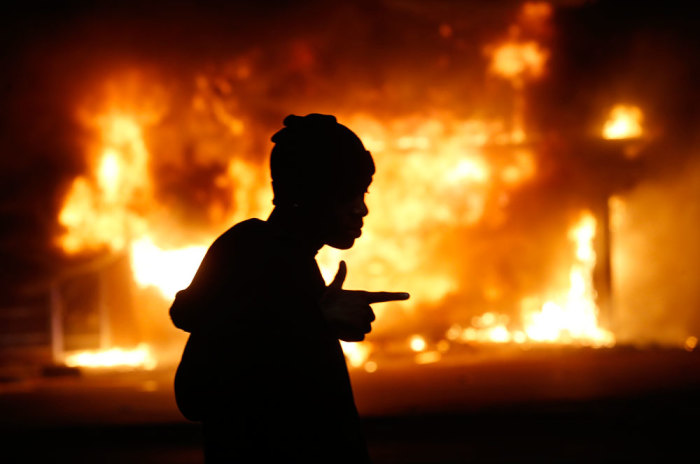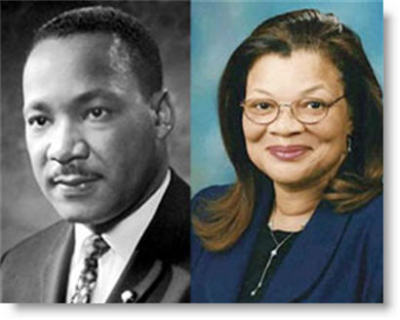What Would Dr. King Think About Deaths of Michael Brown, Eric Garner?


A coalition of Philadelphia-area protesters will stage what they hope will be a 10,000-marcher demonstration on Monday, Martin Luther King, Jr. Day, to protest the recent deaths, caused by police officers, of unarmed black men Michael Brown and Eric Garner. Amid this mass protest on MLK Day, what would Dr. King have thought about their deaths and would he agree with the reactions so far?
The Philadelphia coalition of groups staging the protest believe, according to Daily news writer Mensah M. Dean, that "the slain civil-rights icon would have taken to the streets to protest what they believe are unjustified killings of unarmed black men."
"Organizers of MLK D.A.R.E. - Day of Action, Resistance and Empowerment - hope to get 10,000 marchers to honor King by protesting not only the deaths of Garner and Brown, but also to spotlight the need for reforms in the city's and nation's justice, economic and education systems," reported Dean.
Organizers argue that for too long America has bought into a "mass-marketed" Dr. King; an individual who was quite radical for his day and activist minded.
Dr. Martin Luther King, III, son of Dr. King, was asked back in November as to his opinion regarding how his father would feel about the current situation. In an interview with CNN, Dr. King III said that while he did not believe anyone could really speak for how his father would feel, "I'm sure he would be greatly disappointed."
"First and foremost, he would certainly be feeling very bad for the family, I mean, he would have empathy for the family."
"Secondly, he would feel disappointed that it erupted into a scenario of violence all across communities … he constantly talked about, we must find nonviolent ways to address our conflicts, so he would be always advocating nonviolence, never stooping to and encouraging violence," said King III.
Another family member, Alveda King, niece of Dr. Martin Luther King Jr., released a statement back in August contrasting the riots of her uncle and father's day versus the present time.
"This painful incident brings to mind my father Rev. A. D. King in Birmingham, Alabama in 1963 when our home was fire bombed by rabid racists. The people were angry and wanted to riot," stated Alveda King.
"Daddy stood on the hood of a car with a megaphone and calmed the people. This is not the time to riot. This is the time to pray. Please, protest, stand up for our rights, but do this with nonviolence!"
Echoing the remarks of many black leaders, Alveda King called for nonviolent demonstrations against police brutality and the grand jury decisions.
"To burn down gas stations, loot and steal and rampage local business establishments won't bring Michael back, to his family or to our hurting world," stated Alveda King.
While mostly peaceful, protests during the latter part of last year still involved looting of businesses, mass arrests, and shutdowns of major streets and even the occasional highway.





























